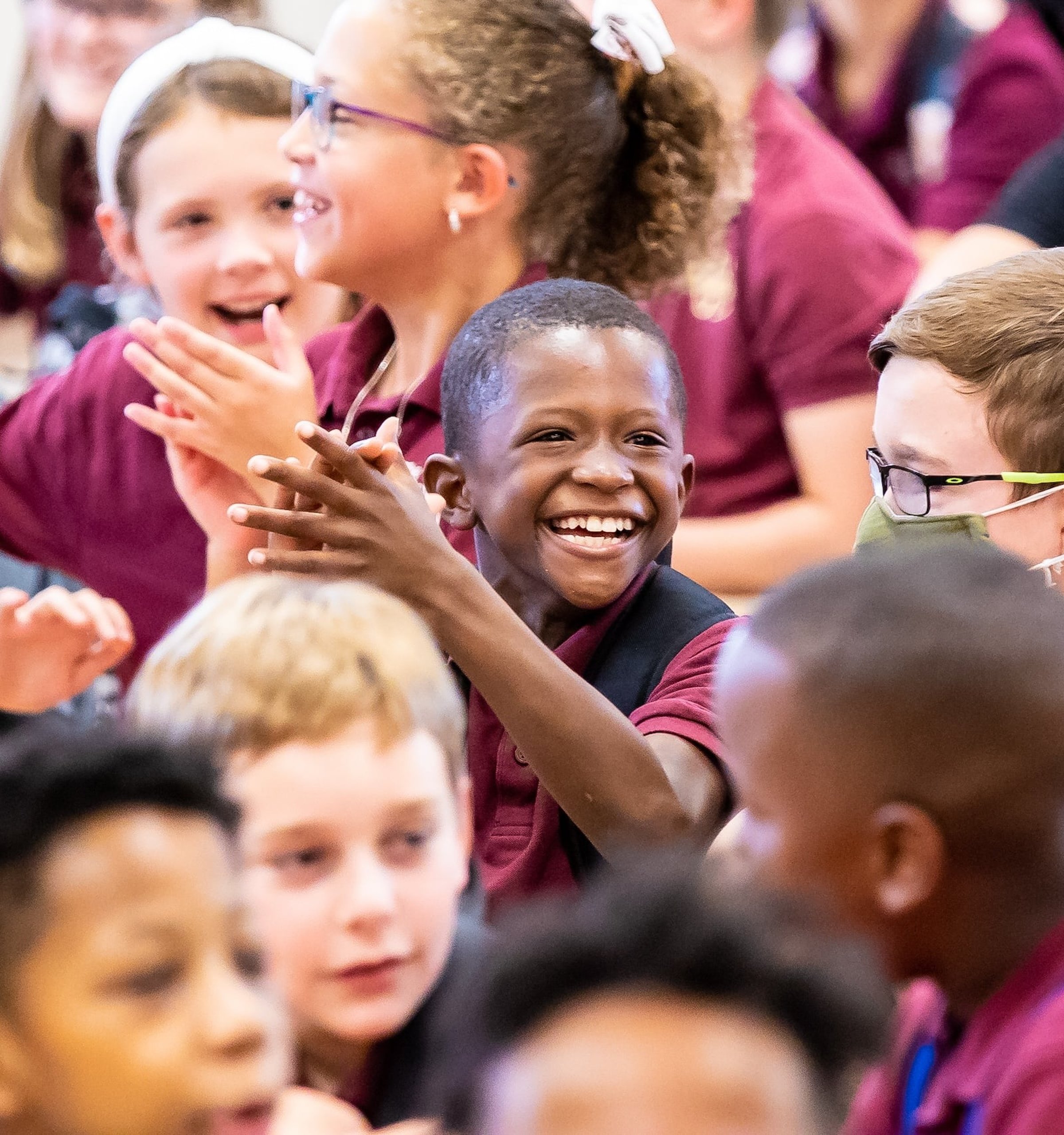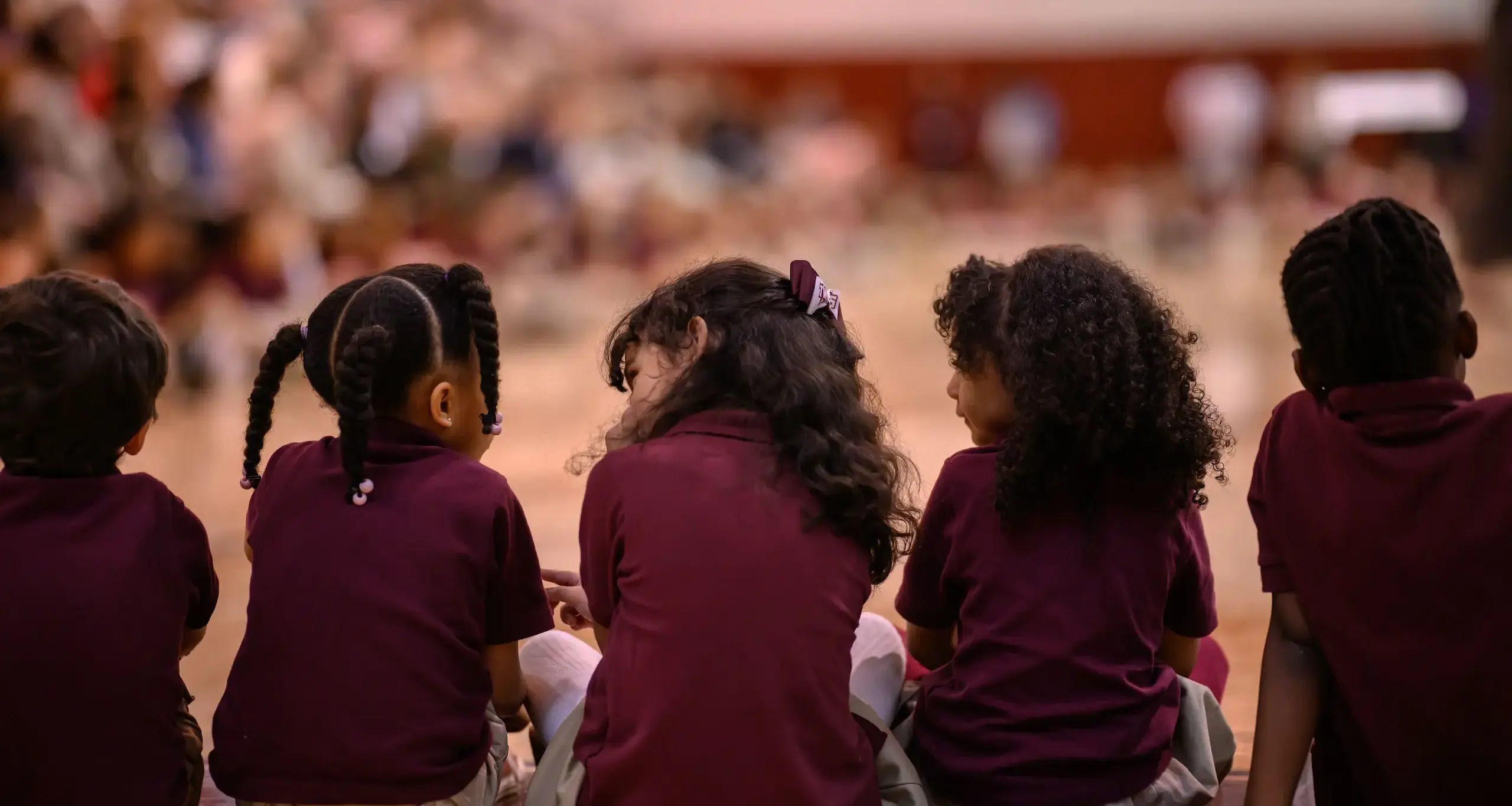At Walker, our approach to science is hands-on and engaging, and all classes (PK3 - 12th grade) take place in state-of-the-art labs.
The Warren Science and Technology Building was completed in 2018 and houses 37,000 square feet of space for our students and teachers to use both in and outside of the classroom, to find the time and space to ponder, to collaborate, to make thinking visible, and to struggle with complex, meaningful problems.
The Warren Building is home to 15 classrooms and labs, two research studios, two robotics labs, a rooftop garden, a recording studio and a sound booth. The Lower School also houses a Tinker Space provided by The Goizueta Foundation, and innovation lab and two state-of-art science labs. The Primary School STEM curriculum takes place in the classrooms, studios and the library.
PRIMARY SCHOOL
Weekly science lessons are a highlight for Primary School students. Students think critically and ask questions like scientists as they experiment, explore, and engage in hands-on activities with a focus on cooperative group learning. Students are introduced to the TEC (Technology, Engineering, and Creativity) co-curricular in Pre-Kindergarten, where they participate in various STEM-based activities including an introduction to the engineering design process and simple coding.
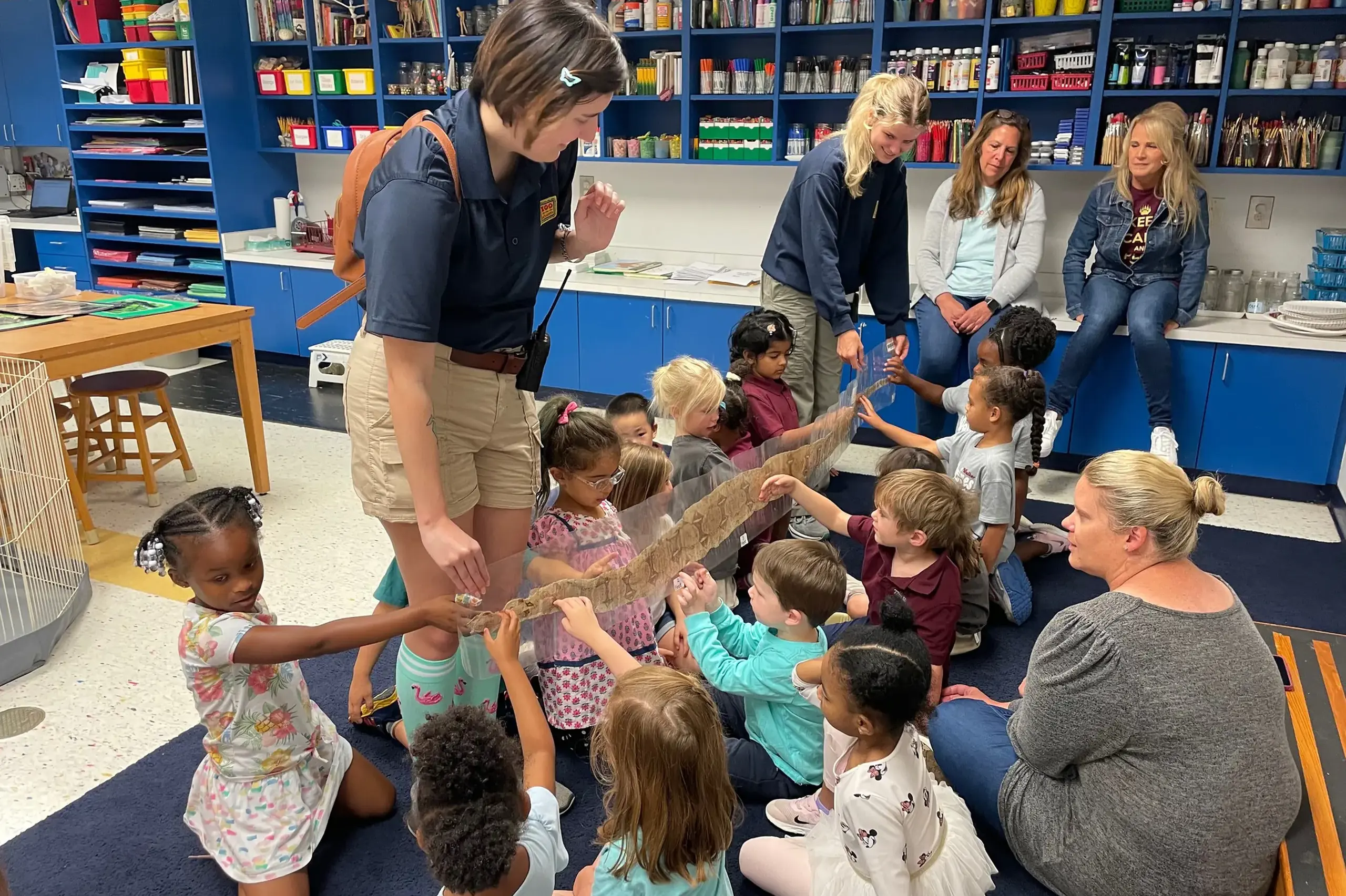
LOWER SCHOOL
In the Lower School, Walker students use a hands-on, inquiry-based science curriculum that provides students with experiences appropriate to the students' developmental levels. Students often work in collaborative groups as they use the scientific processes to explore a variety of content areas. At each grade level, the science content reflects the latest scientific research with a blend of physical, earth and space, and life sciences.
In first, second and third grade, units of study within the FOSS curriculum provide diverse opportunities for investigation of scientific concepts. These units of study spiral to provide students with multiple exposures to concepts and include the following pedagogies:
- Active investigation, including outdoor experiences
- Recording in science notebooks to answer questions and reflect
- Reading non-fiction materials to further investigate or understand
- Formative and summative assessment measures to support and guide learning
In fourth and fifth grade, students explore the content areas of chemistry, zoology (vertebrate and invertebrate), botany, and ecology. The units of study are used as a basis for gaining awareness of the scientific methods of observing, comparing, organizing, relating and classifying, hypothesizing, drawing conclusions, and applying learned principles. Students integrate the scientific process with research and writing skills in preparation for upper-level science classes.
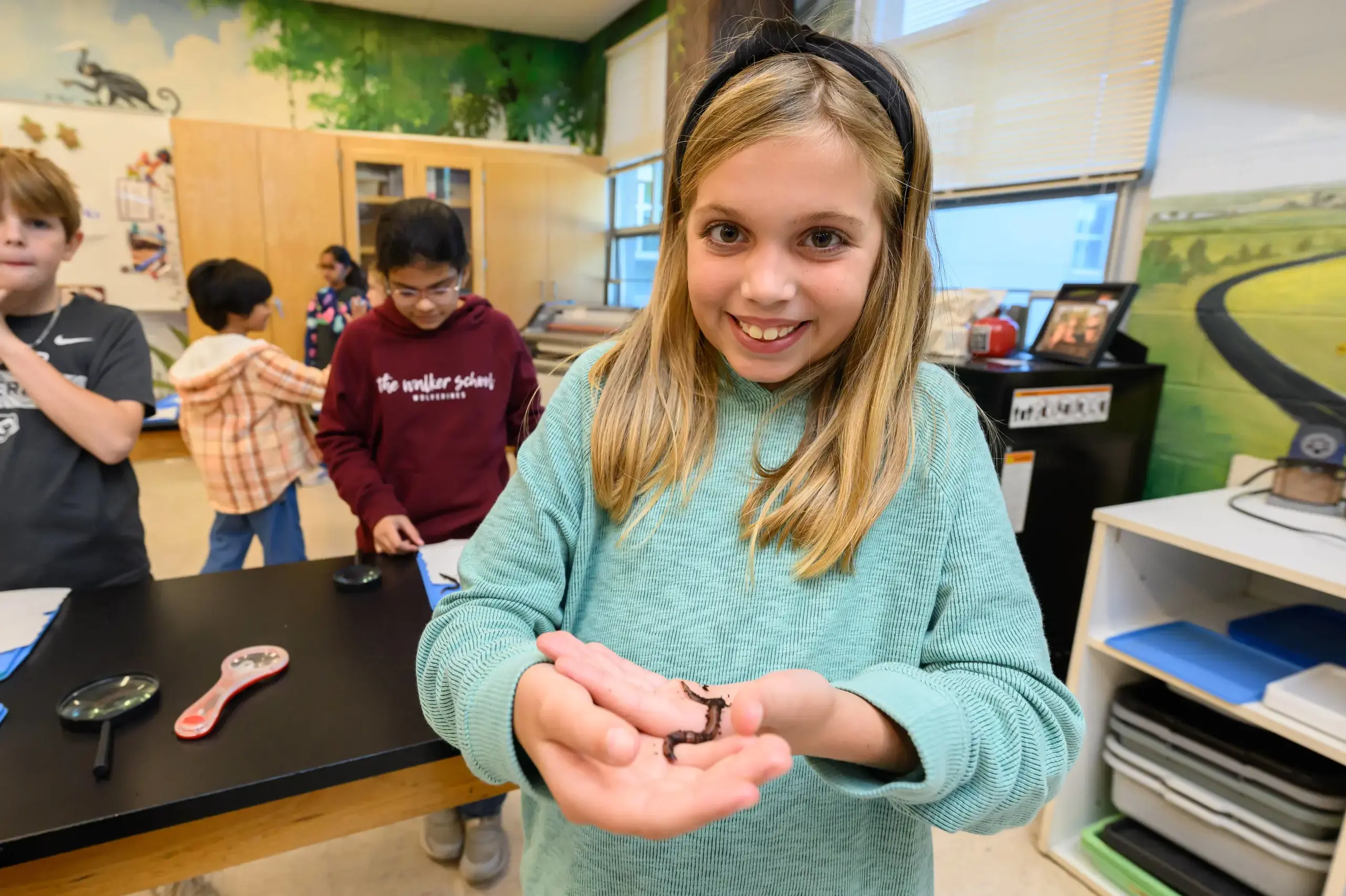
MIDDLE SCHOOL
In the Middle School, Walker students continue the hands-on, inquiry-based science approach that provides students with experiences that build critical thinking, problem-solving, and team building. Students work in collaborative groups to explore a variety of content areas. As students move from the sixth grade to the eighth grade, they cover relevant topics in earth and space science, life science and physical science. The emphasis is on the scientific practices of constructing arguments based on evidence, asking questions, developing and using models, and collecting and analyzing data.
Examples of project-based learning in the Middle School classroom include the Weather Balloon Project, in which 6th-grade students partner with the University of Alabama in Huntsville to collect and analyze data from a weather balloon that students launch on campus. Through the Newton Car Project, students in eighth grade explore the engineering design process. In small groups they collaborate on their own model car design and race their creations. Then students follow up by analyzing data and writing a report on their results and experience.
Middle School science allows the students to explore problems that impact everyday life through an inquiry and investigative approach. They are able to apply the knowledge and skills they have developed to their own lives and to the “real world." The curriculum includes case studies, practical labs, and technology integration.
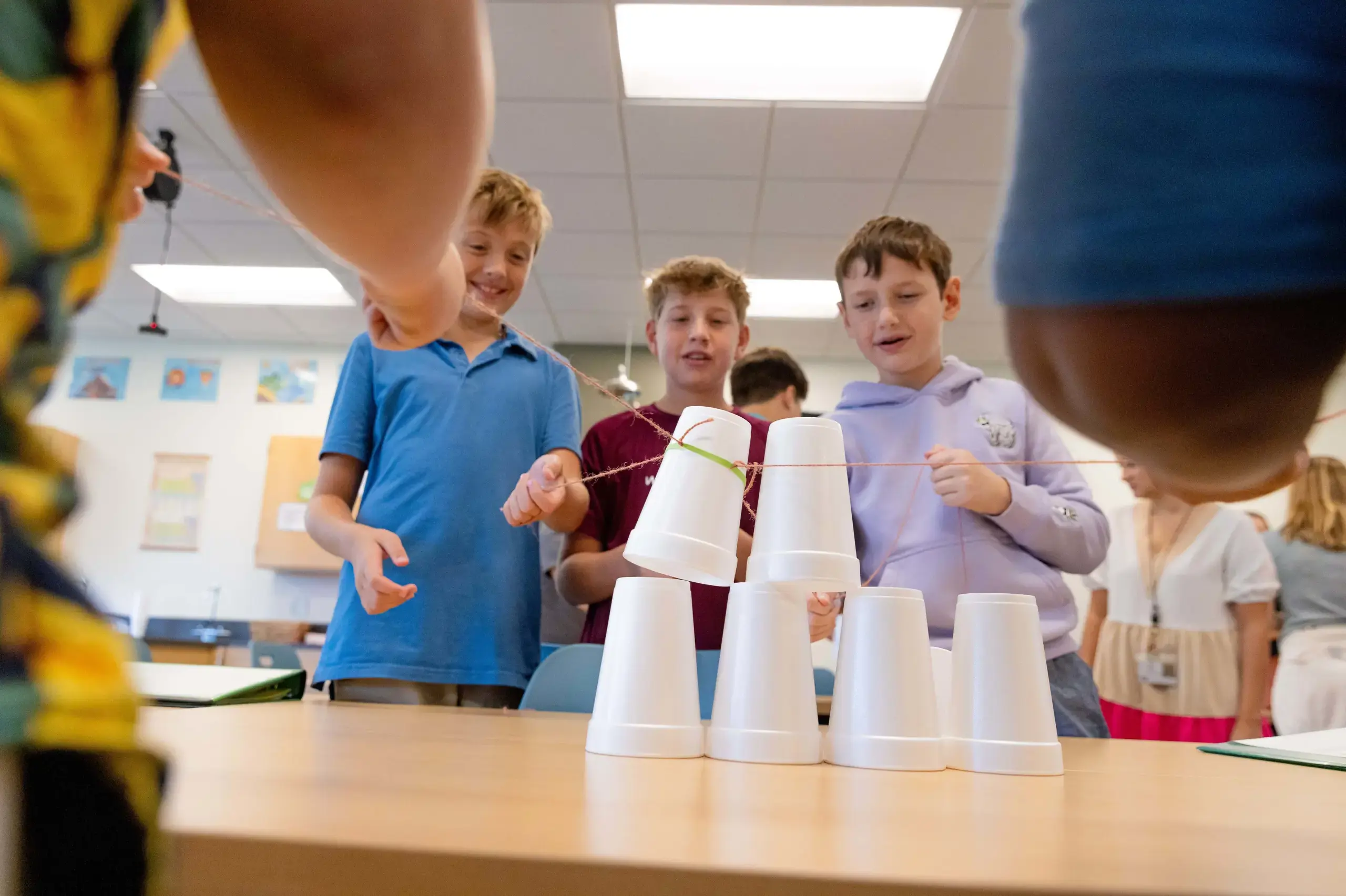
UPPER SCHOOL
Because science represents an integral way of thinking about the world around us, our science curriculum trains students to explore life with a critical eye and an open mind. Emphasis is placed on observation, analysis, and the development of critical thinking and communication skills. Courses are taught via a wide variety of methods, including labs, classroom discussions, modeling, and projects. Technology is integrated at each level to allow our students to gather and analyze data, as well as to connect with current events in the field. Our core academic courses are inspired by the Next Generation Science Standards.
Students take Biology as a freshman, Chemistry as a sophomore, and Physics as a junior or senior. Juniors and seniors have a variety of course options available to pursue their scientific interests and fulfill their requirements. Course offerings may vary from year to year.
We offer a wide variety of electives to encourage students to apply what they have learned in their core courses, to pursue existing passions, and to find new ones. Students with a passion and talent for science have the opportunity to be part of Advanced Placement courses in Biology, Chemistry, and Physics as well as our Public Health or Engineering concentrations including a Guided Scientific Research course.
Requirements: Students must take four (4) units of science in grades 9-12, including Biology, Chemistry, and Physics.


_709.webp?version=638593720357400000)
